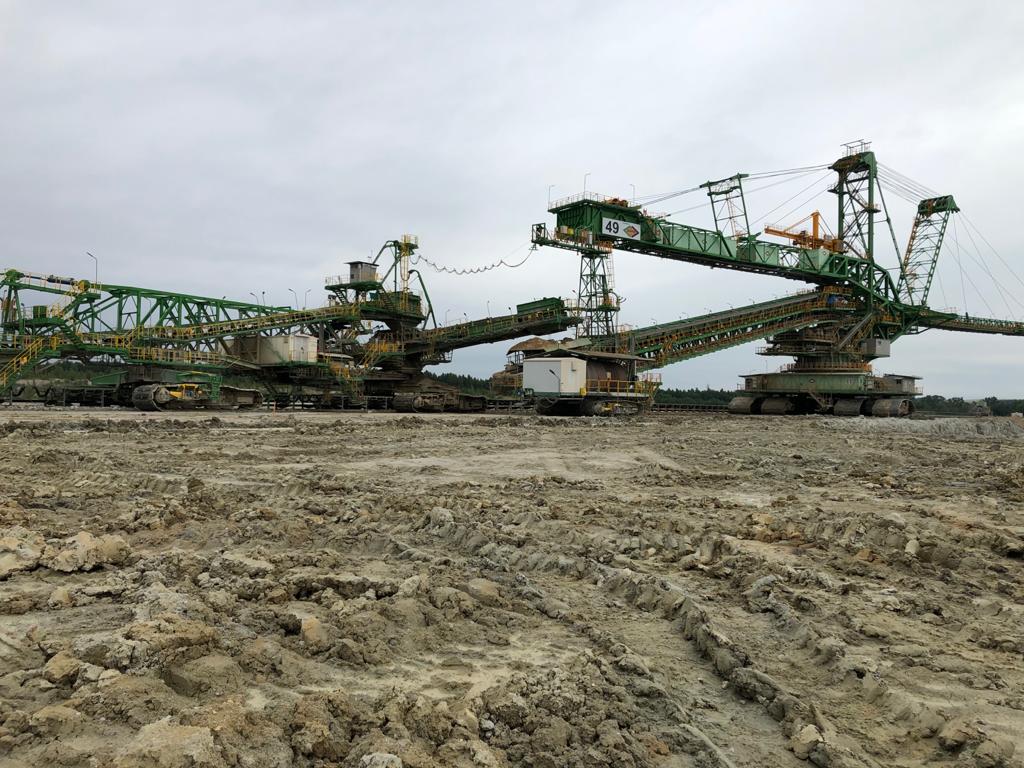Turów mine’s retention wall it working. The Czechs confirm
The underground retention wall built by the Turów mine is doing its job, and the facility itself does not pose a threat to Czechia’s ground waters. This has been confirmed by the Czechs, who last year signed an agreement with Poland that obliged Warsaw to design a new hydrogeological model, among other things.
The Polish-Czech agreement, concluded last year, defines the parameters for an underground retention wall designed to retain groundwater. „In the four wells designated in the agreement to monitor the impact of the wall, the groundwater level rises between 63 centimeters to 4.17 meters. This clearly shows that the underground wall is working. The parameter concerning the impermeability of the wall is also met, which is at a level higher than specified by the agreement,” confirms the head of the Czech Geological Survey Zdeněk Venera.
He adds that the increase in water levels was also recorded in three other wells located on the Polish side at a distance of 400-850 meters south of the underground protective barrier. At the same time, he noted that in the monitoring wells on the Czech side, the water level continues to fall. „For this reason, we can not confirm the positive effect of the wall also on the territory of the Czech Republic. Today we cannot clearly determine if and when it will occur, because the hydrogeological situation is complex,” concludes Venera, quoted by Polish Radio.
„The Polish-Czech agreement on Turów obliges the Polish side to develop a new hydrogeological model within the next two years. It also provides for the possibility of expanding or compacting the underground protective barrier, if it does not bring the expected effects on the Czech side. As part of the agreement, the Czechs also received access to the mine’s monitoring data. Currently, the construction of the earth dam, which is to protect the surrounding residents from dust and noise,” the Polish Radio reported.
Polish Radio / Jędrzej Stachura
Poland may fire shots if the Baltic Pipe is threatened
Poland will shoot to protect the Baltic Pipe and more. The president signed an amendment to the law on the protection of shipping and ports, which defines the rules and mode of removal of a terrorist threat from the sea and air.
The purpose of the amended law – as indicated in the justification – is to provide the Armed Forces of the Republic of Poland with the ability to effectively respond to terrorist threats from the sea and air, which cannot be neutralized by means remaining at the disposal of the minister responsible for internal affairs. „In addition, the aim is to provide the state with the opportunity to use the capabilities of the Armed Forces of the Republic of Poland to <counter modern threats to the security of the state, which escape the established schemes and prevent taking action within the existing legal order>,” the press release said.
„The provisions of the amendment provide for the possibility of the use of armed forces against terrorist threats against offshore energy infrastructure, including the Baltic Pipe gas pipeline, and other facilities and installations providing access to ports, offshore wind farms, underwater electricity networks and fiber – optic networks,” the press release reads.
„The threat from Russia will haunt Poland for decades to come, which is why we need to develop measures to protect critical infrastructure, including naval forces. This is being done so that in case Russians appear near the Baltic Pipe or offshore wind farms we will be able to send a unit that will monitor them,” says Michał Piekarski, PhD, from the Social Sciences Department at the Wrocław University, in an interview with BiznesAlert.pl.









